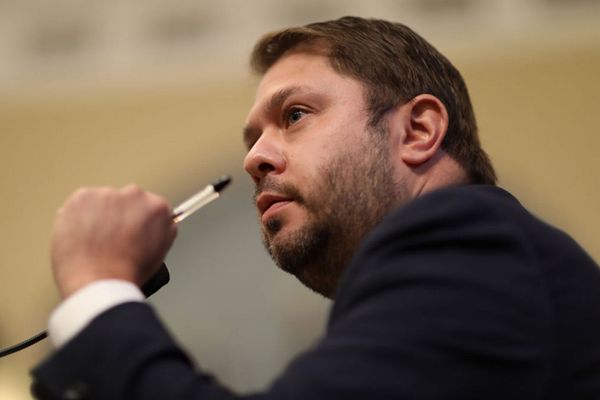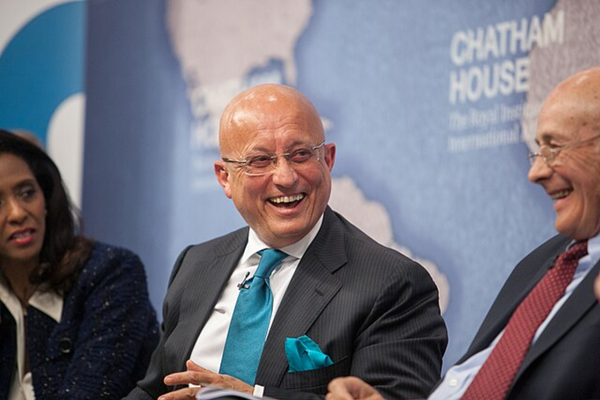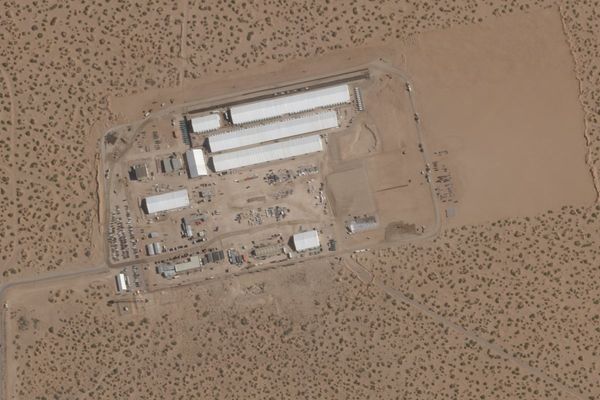
The U.S. judge named to review documents seized by the FBI last month at Donald Trump's Florida home pressed Trump's lawyers on Tuesday to say whether they plan to assert that the records had been declassified by the former president, as he has claimed.
Judge Raymond Dearie - serving as an independent arbiter, or special master, to vet the more than 11,000 seized documents and potentially recommend keeping some away from federal investigators - asked Trump's lawyers why he should not consider records marked classified as genuinely classified.

"If the government gives me prima facie evidence (a legal term meaning a fact presumed to be true unless disproved) that this is classified, and you decide not to advance a claim of declassification ... as far as I'm concerned that's the end of it," Dearie told Trump's lawyers in his first public hearing on the matter.
Dearie, a senior federal judge in Brooklyn who Trump's lawyers recommended to serve as special master, did not issue a ruling.
Roughly 100 of the documents seized in the court-approved Aug. 8 search at Trump's home in the Mar-a-Lago resort in Palm Beach had classified markings. Trump's attorney James Trusty told Dearie it is too early to say Trump had used his powers while still president to declassify the documents - a stance that Dearie suggested weakened the claim.

"You can't have your cake and eat it," the judge said.
The Justice Department is conducting a criminal investigation of Trump for retaining government records, some marked as highly classified including top secret, at Mar-a-Lago after leaving office in January 2021. Trump has denied wrongdoing and has said without providing evidence that the investigation is a partisan attack.
Trump has said in social media posts that he declassified the records, but his lawyers have skirted the issue in court.

The three statutes underpinning the search warrant used by the FBI at Mar-a-Lago make it a crime to mishandle government records, regardless of their classification status.
Dearie is tasked with recommending to Florida-based U.S. District Judge Aileen Cannon, who is presiding over the fight over access to the seized documents, which records may be protected by attorney-client confidentiality or an assertion of executive privilege, a legal doctrine under which a president can keep certain documents or information secret.
Trump's lawyers argued that now is not the time to present specific information regarding declassification and, in a letter filed ahead of the hearing, said it would force them to disclose a defense to any subsequent indictment - an acknowledgement that the investigation could lead to criminal charges.
Cannon's order appointing Dearie as special master asked him to conclude his review by the end of November and to prioritize documents marked as classified. The process set out by Cannon called for a Trump lawyer to review the documents, a task for which members of his legal team may lack the necessary U.S. government security clearance.
Trusty asked Dearie to urge prosecutors to let more members of Trump's team get proper clearance. Dearie said only those who truly need to see classified material should be granted access.
Julie Edelstein, a prosecutor, told the hearing some of the documents are so sensitive that even some members of the Justice Department team have not been allowed to see them.
The Justice Department on Friday appealed to the Atlanta-based 11th U.S. Circuit Court of Appeals the portion of Cannon's ruling allowing the special master to vet the records marked as classified and the judge's restricting FBI access to them.
Trump's legal team on Tuesday opposed the government's request and calling the Justice Department's investigation "unprecedented and misguided."
The department opened its investigation after the National Archives, the U.S. agency responsible for preserving government records, tried to get missing government property returned by Trump and received 15 boxes with classified documents mixed in.
(Reporting by Karen Freifeld and Luc Cohen in New York, additional reporting by Sarah N. Lynch in Washington; Editing by Scott Malone, Will Dunham, David Gregorio and Chizu Nomiyama)







